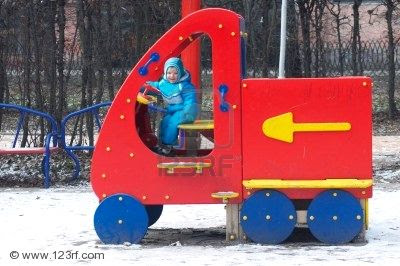The Use of Modals : Can, Could, Will, Would, May, Might, Must, Shall, Should
Can, could, will, would, may, must, might, shall and should are helping verbs called modals. Each of them has their own functions. As you read the functions, take note of the examples and notice :
● when they are combined with an action verb, the meaning of the
verb changes. Example : can talk - ability to talk; will talk -
intention to talk ; must talk - the necessity to talk
● they cannot act alone – they always need a main verb
● in using them, the simple form of the verb is always used (without
s, ed, or ing)
1. Can is used to
a. express ability. The past form of can for ability is could.
He can speak Spanish but he can't write it well.
She can drive a car.
b. make requests and orders.
Can you help me make a cup of coffee?
Can you come here a minute?
Can you sew me a dress?
Can you come here a minute?
Can you sew me a dress?
c. ask or give permission.
Can I smoke in this room?
You can't smoke here, but you can outside.
You can't smoke here, but you can outside.
d. express theoretical possibility.
American automobile makers can make better cars if they think there's
profit in it.
 |
| Look! The baby can drive! |
2. Could is used to
a. express ability in the past
I could always beat you at tennis when we were kids.
b. express past or future permission
Could I bury my cat in the backyard?
c. express present possibility
c. express present possibility
We could always spend the afternoon just sitting around talking.
d. express possibility or ability in contingent circumstances. " not so sure"
d. express possibility or ability in contingent circumstances. " not so sure"
If he studied harder, he could pass his subject.
3. Must is used to
a. show certainty
That must have been the restaurant. There are no other restaurants
on this street.
b. show prohibition (referrring to the future)
You must not forget to bring your exercises to class.
c. strong recommendation
You must take a rest or you'll get sick.
d. show necessity
d. show necessity
You must have a permit before taking up the exams.
e. convey strong obligation. (the past form of must for obligation is had to )
You must improve your work.
We had to leave the country immediately.
We had to leave the country immediately.
4. Might is used to
a. show possibility. "I'm almost sure."
She might take your advice.
b. show conditional situation.
b. show conditional situation.
If I entered the contest, I might actually win.
c. give suggestion.
c. give suggestion.
You might try the cheesecake.
d. make requests.
d. make requests.
Might I have something to drink?
5. May is used to
a. give or ask permission. (the past form of may for granting or seeking
permission is might)
You may come in now, young ladies.
May I use your pen?
If I've finished all my work early, might I leave early ?
May I use your pen?
If I've finished all my work early, might I leave early ?
b. show possibility. "I'm not sure, but it's possible."
The Barangay Captain may lend us the tent for the party.
6. Will can be used to
a. express willingness.
I will wash the dishes if you dry.
We're going to the movies. Will you join us?
b. express intention.
I will do my exercises later.
I will see you tomorrow in school.
c. denote prediction
The meeting will be over soon.
Humidity will ruin my hairdo.
7. Would can
a. also be used to express willingness
Would you please take off your hat?
b. express insistence.
Now you’ve ruined everything. You would act that way.
c. express a sense of probability
I hear a whistle. That would be the five o’clock alarm bell.
8. Shall is
a. used with an element of permission.
Shall we go now?
Shall I see you tomorrow?
b. often used on formal situations to express present and future obligation
The student council shall be responsible to the student body.
The student council president shall report the financial status of the organization.
9. Should is
a. used to talk about the right thing to do in a situation
June is in the hospital. We should visit her.
You should go and see that film.
b. used when you are giving someone advice about what to do
You should see the doctor.
You should buy a new car.
Now let’s practice -- take a Quick Test.
Source : Collin’s Cobuild ESL Advanced Grammar, 1995
Related Articles :
Do you have a grammar question that you want us to answer? You can do any of the following :
(1) comment on this post;
(2) email us at thelanguagehub@live.com;
(3) send us a private message at Facebook (Boundless Steps);
(4) text us at 0919-318-3274
(1) comment on this post;
(2) email us at thelanguagehub@live.com;
(3) send us a private message at Facebook (Boundless Steps);
(4) text us at 0919-318-3274



Comments
Post a Comment